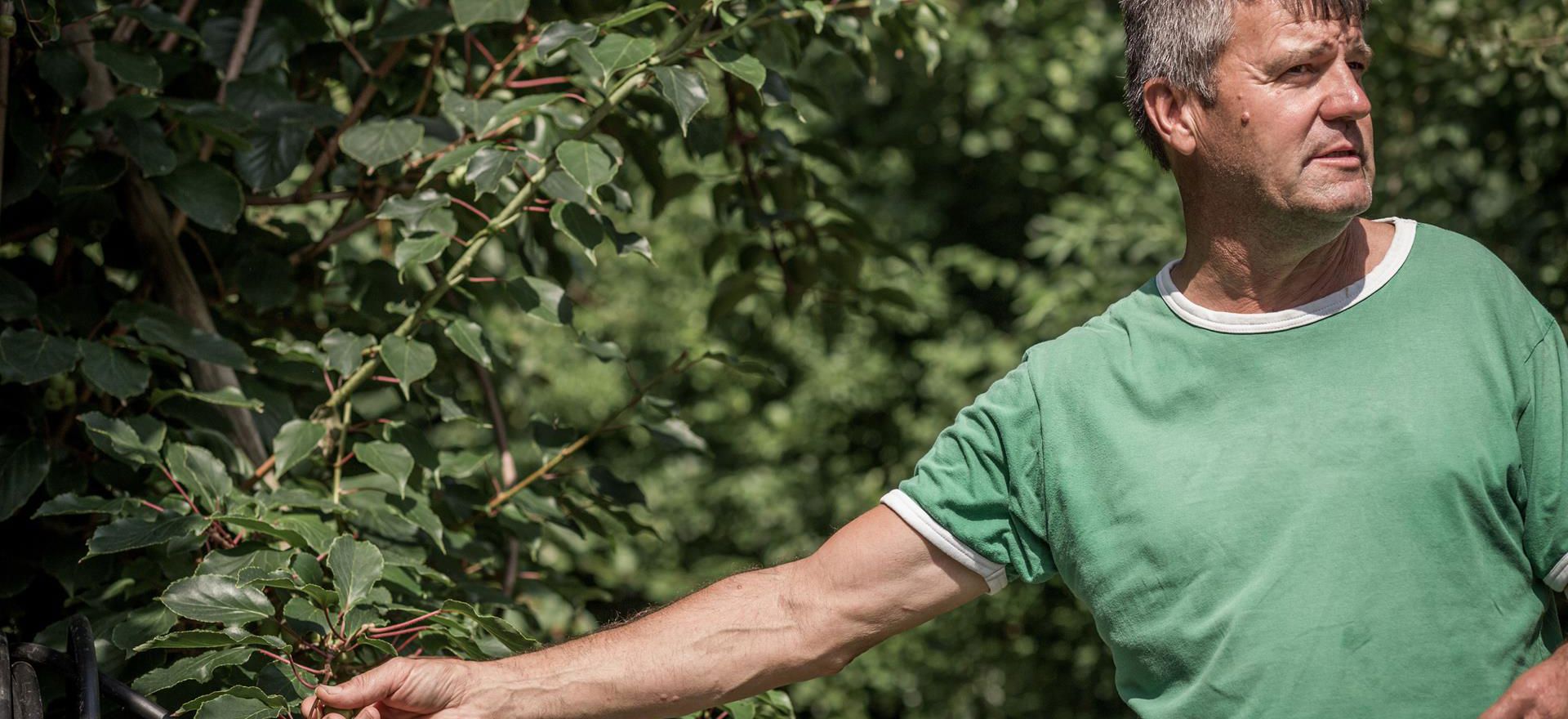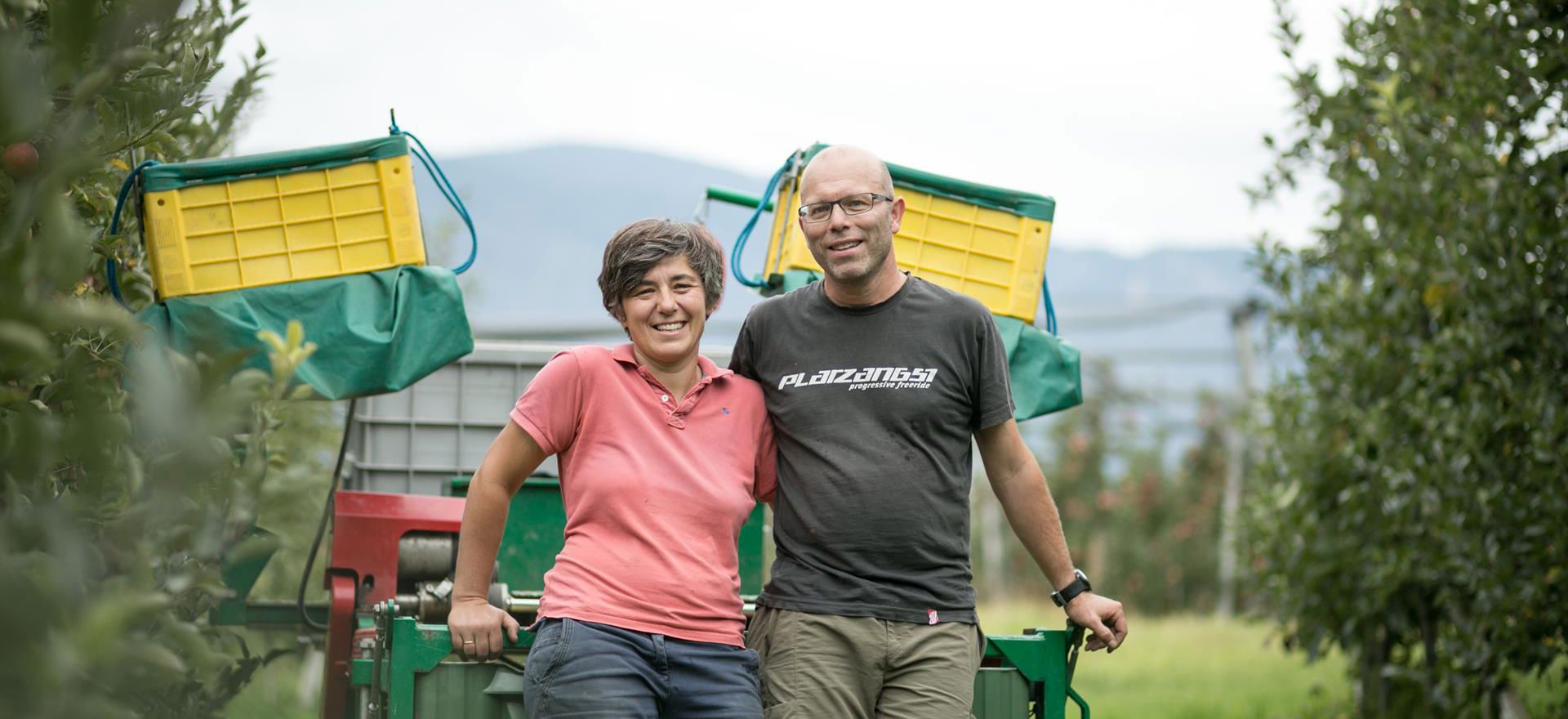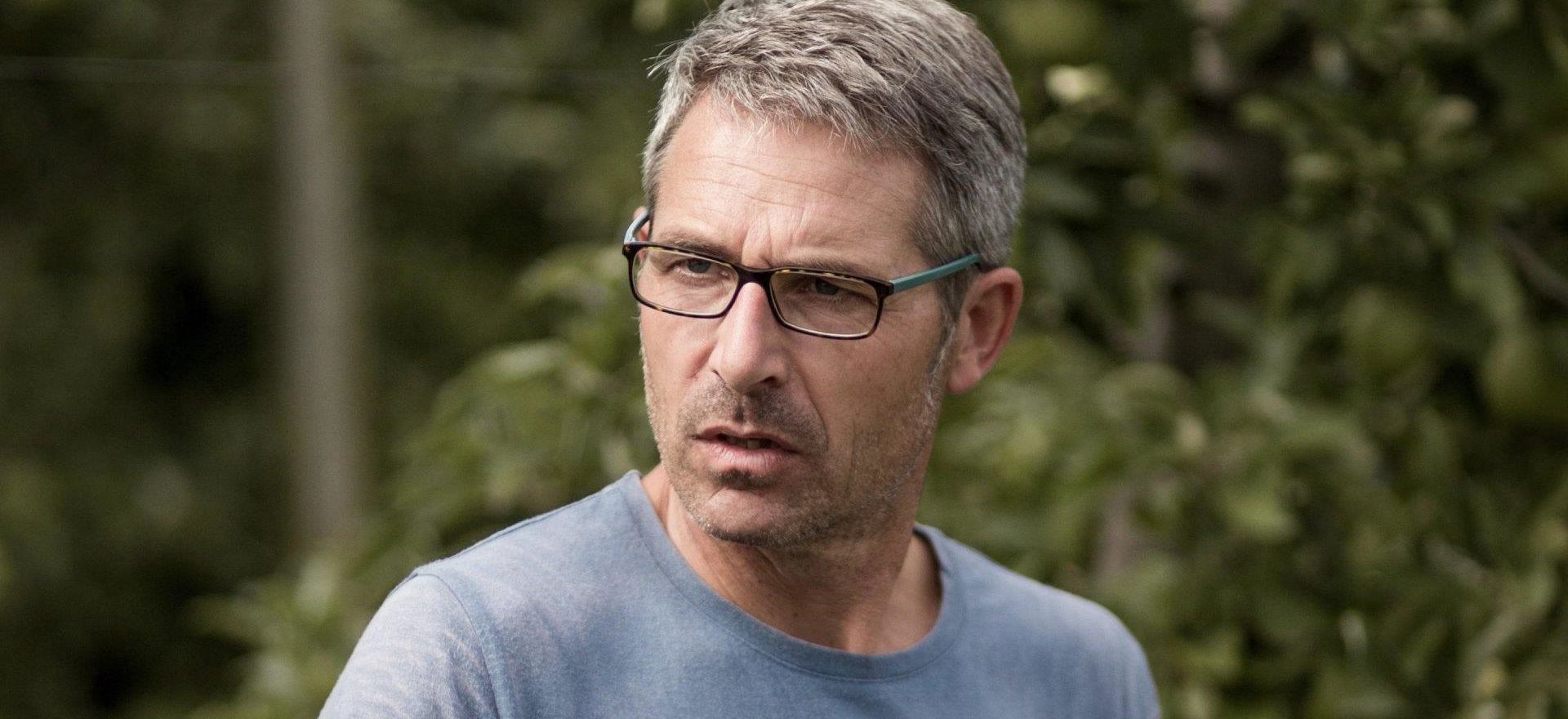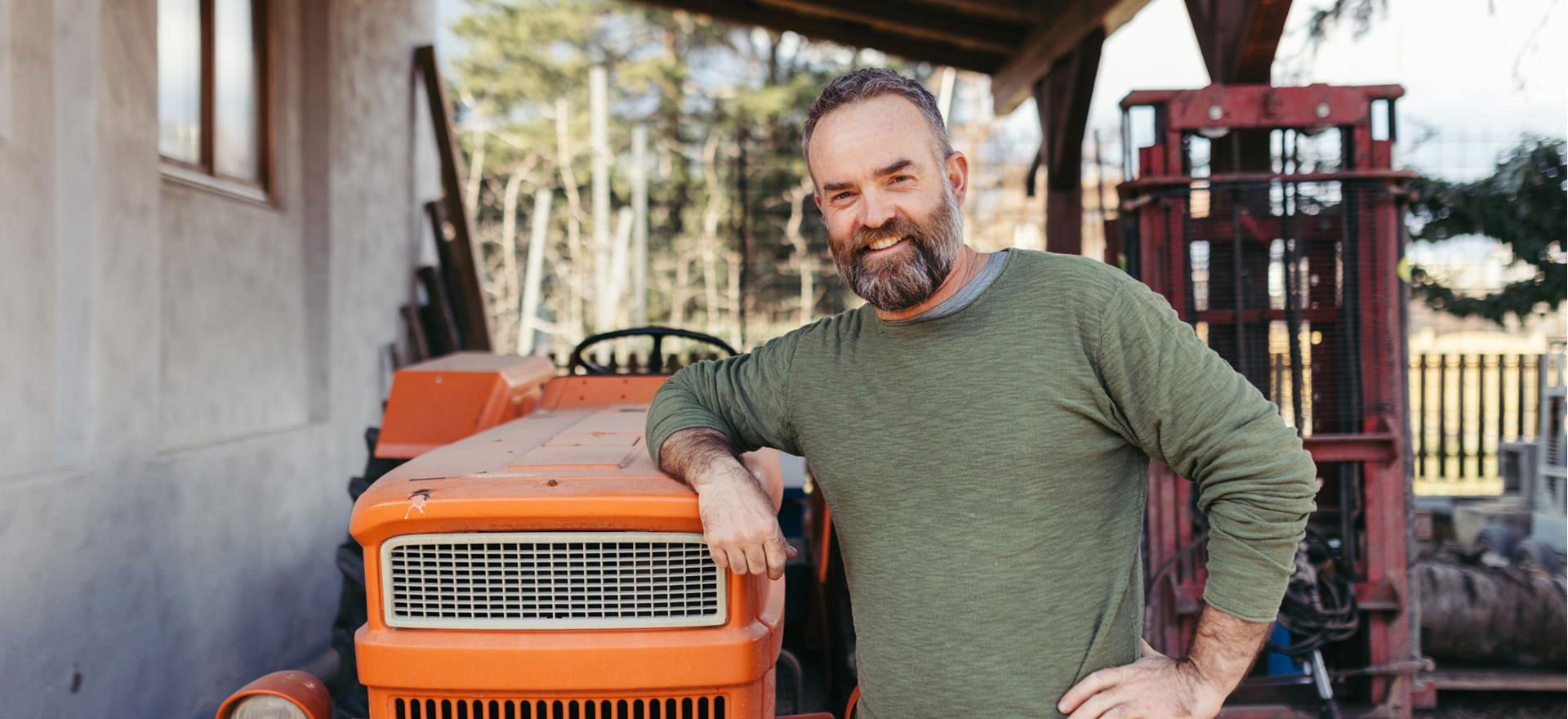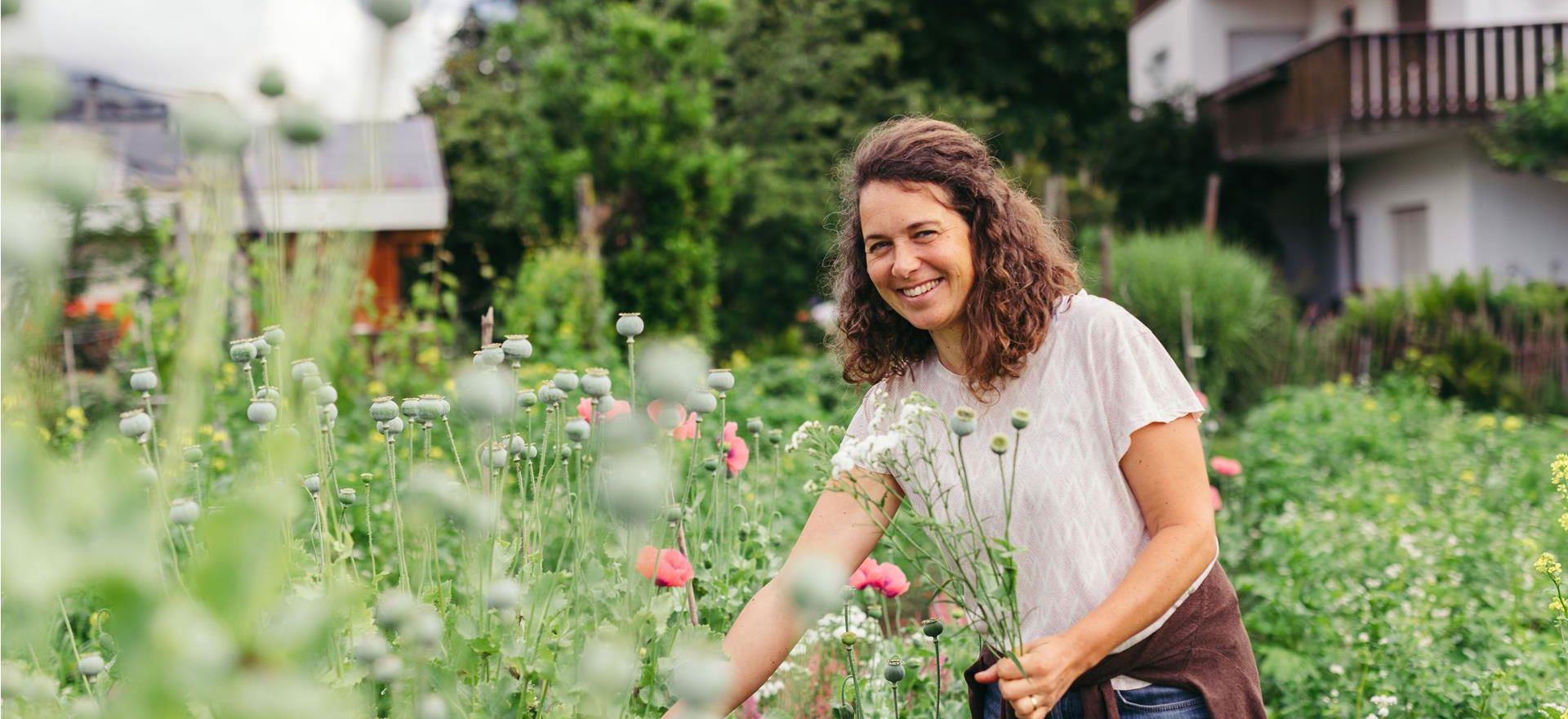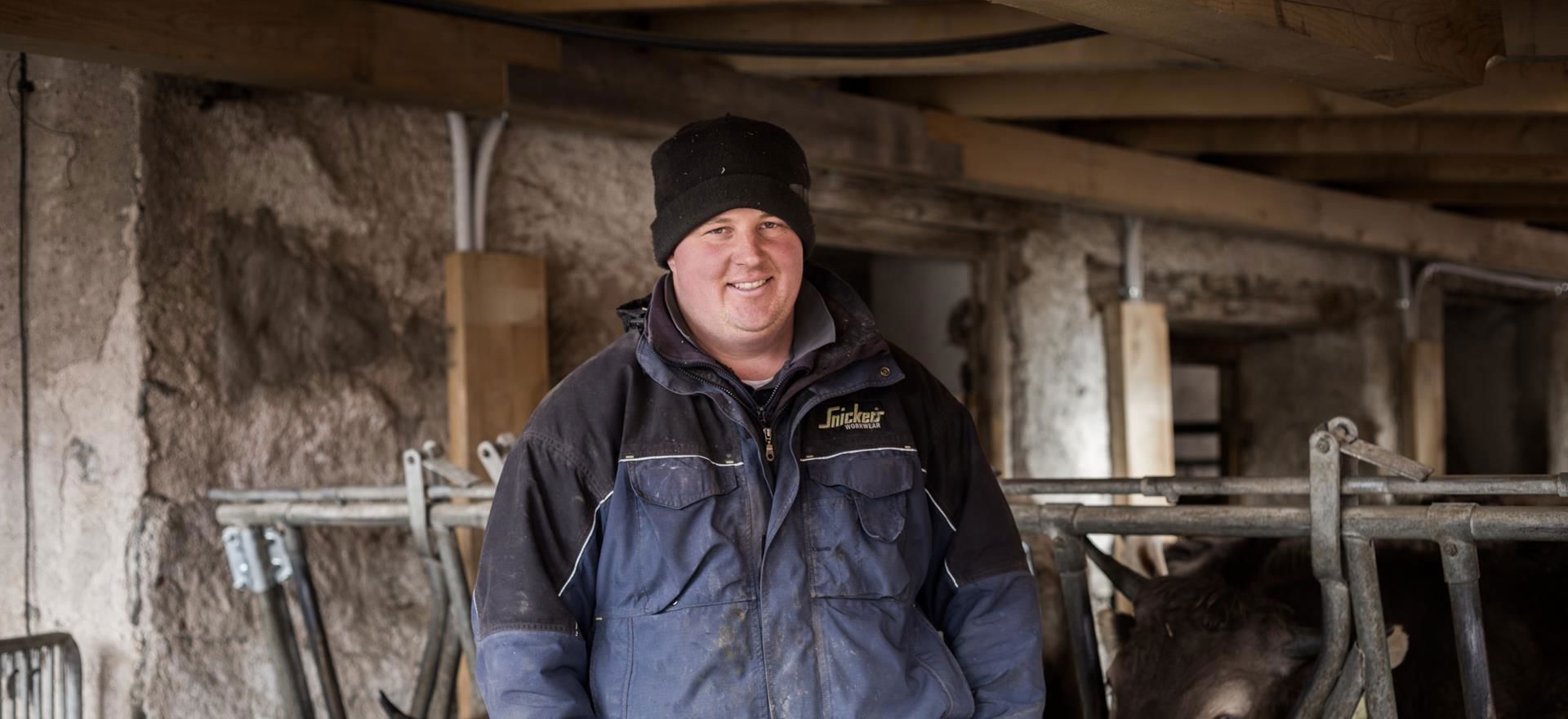Klaus' goal is to work with even fewer plant protection treatments. He doesn’t use fertiliser applied to the leaves of the trees, or anywhere else, apart from compost, which he creates with his neighbour.
For Klaus, inter-farm cooperation is not only the solution for composting. For him, it is also the key to structured greening across farm boundaries. "It’s about sensible ecological measures, and not about planting two hedges that look nice".
In addition to structured eco niches, Klaus sees resistant varieties as a way to reduce treatments. He finds a 50% share of resistant apple varieties suitable for his farm. Today,
GoldRush® and
Story® Inored are among them, and soon
Natyra® will be added. Klaus has high hopes for
GoldRush® in particular. "With its fine mix of sweetness and acidity and its strong yellow, it stands out in the range of resistant varieties."
Offering young people the opportunity to carry the torch is fundamental in farming. This requires positivity and making room for development. The farmer's freedom must not negatively influence organic guidelines, but neither must the farmer be forced to do things like keep animals for example. "I like keeping chickens, but if my son wouldn't want to, he should be free to concentrate on the fruit. Otherwise, neither he nor the animals would be happy. And if the point of this is closing loops to make stronger connections, there is an excellent compromise: inter-farm cooperation between fruit and livestock farmers."
And so the circle closes, because inter-farm cooperation and the community are also at the heart of the Biosüdtirol cooperative. Here Klaus meets old friends like Franz Egger, who was already experimenting with organic when Klaus was at school. "The openness for organic from some of the teachers has subconsciously shaped me to this day. It's nice that there is an organic block at school today." Meanwhile, Klaus is a point of reference for farmers converting to organic. "I have benefited from other organic farmers, still exchange ideas with them today and like to pass on my experiences. Together we make the best progress."








